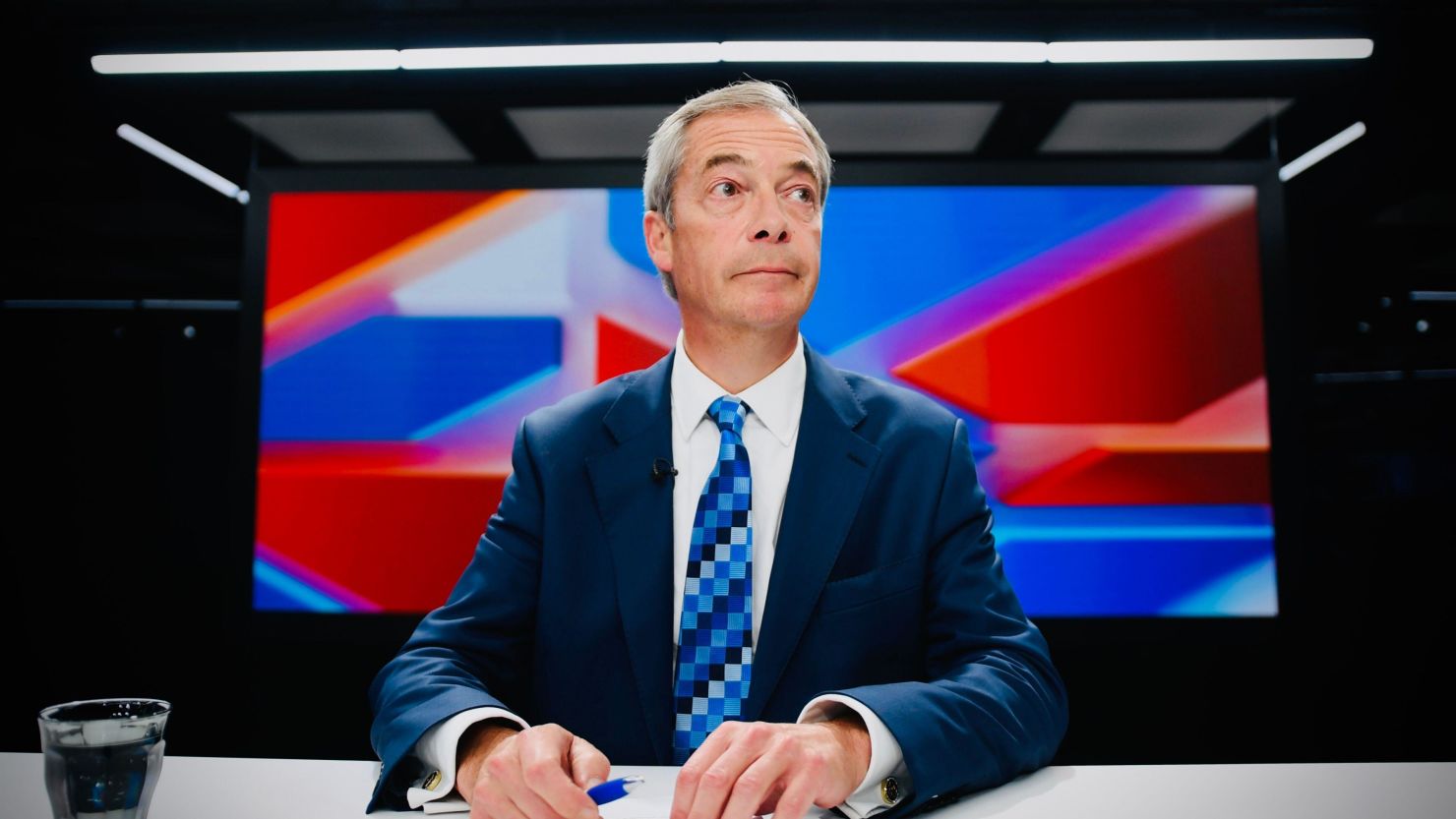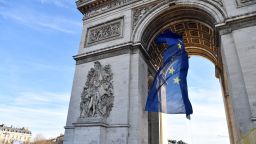If 2020 renewed calls for racial equality as Black Lives Matter protests exploded throughout Europe, 2021 brought in the backlash as parts of the political establishment waged a so-called “war against woke.”
Stripped of its original meaning of a person being awake to progressive issues, “woke” has been appropriated from the Black vernacular and turned into a political lightning rod in the West’s culture wars. It is now used pejoratively by lawmakers and pundits from both left and right, criticizing the perceived excesses of social and racial justice movements.
The politicization of the word, which has seen degrees of success in the United States, has bolstered political resistance to calls for more equality in Europe. The amorphous term has also been interpreted differently, depending on where it is deployed.
In the United Kingdom, woke is used to “describe anything that could previously [be] described as ‘politically correct,’” Evan Smith, a visiting fellow at Australia’s Flinders University and author of “No Platform: A History of Anti-Fascism and the Limits of Free Speech,” told CNN. The term is “used to describe a broad range of ideas [and] movements concerned with social justice,” including anti-racism, intersectional feminism, trans rights and critical histories of the British empire, he said.
Cultural institutions and academics have been targeted by members of the ruling Conservative Party for supporting those movements. In September, Prime Minister Boris Johnson’s spokesperson accused a charity set up in the name of Winston Churchill of trying to “airbrush” the “giant achievements” of the former wartime leader.
The charity’s mistake? Being accused in rightwing tabloids of being “woke,” for changing its name from the Winston Churchill Memorial Trust to The Churchill Fellowship and acknowledging that Churchill’s views on race would not be accepted today.
“The Prime Minister has always been clear that whilst it’s legitimate to examine Britain’s history and we should aim to educate people about all aspects of our complex past, both good and bad, and not erase them,” the spokesperson said at the time according to PA Media. “We need to focus on addressing the present, and not attempt to rewrite the past and get sucked into the never-ending debate about which well-known historical figures are sufficiently pure or politically correct to remain in public view.”
These anti-woke government interventions have power. They “sharpen the public’s sense of moral purpose and help to galvanise voters in a country they perceive to be under siege,” wrote Nesrine Malik in the left-of-center newspaper, the Guardian, in October. “They include the defunding of academic institutions and museums, and even interfering in the appointment of senior personnel at the BBC.”
Many in the French establishment view “woke” as a heinous US import of theories on race, post-colonialism and gender, which they say pose a risk to French values and identity, Samuel Hayat, a politics research fellow at French National Center for Scientific Research (CNRS), told CNN.
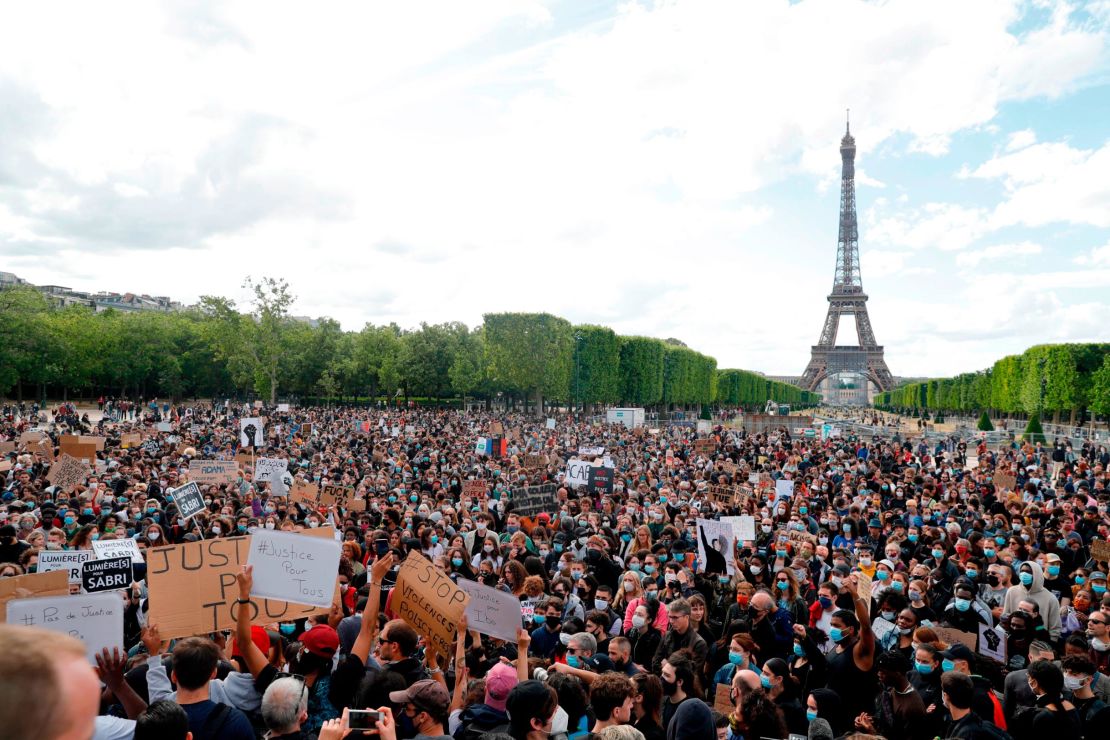
The term gained traction among French politicians and its press in 2021, say French observers. In May, Elizabeth Moreno, French President Emmanuel Macron’s party diversity minister, told Bloomberg that “woke culture is something very dangerous, and we shouldn’t bring it to France.” When asked in August whether “wokism [is] a just cause, in your opinion” by weekly political magazine Le Point, Paris Mayor Anne Hidalgo, who is the socialist candidate in the upcoming presidential elections, said: “it is very important that journalists shed light on these emerging movements, but I will not be campaigning on them.”
When a major French dictionary included a gender-inclusive pronoun in its online edition in November, French lawmaker François Jolivet, from Macron’s party, called the dictionary’s authors on Twitter “militants of a cause that has nothing to do with France: #wokisme.”
“Woke is seen as a threat that comes from a society thought to be multicultural and violent and does not have the same values on secularism that France does,” Hayat said.
The word plays against the French egalitarian, anti-elitist mindset, said Hayat, placing all the theories someone might struggle to understand, such as intersectional feminism, “into a single phenomenon that came from outside France.”
As Franco-American relations plunged to new lows this fall over a security deal the US forged in secret with the UK and Australia, French Education Minister Jean-Michel Blanquer opened a think tank to uphold French values against what he described as “wokeism.”
Speaking to France’s Le Monde newspaper about his think tank, Blanquer said “wokeism” is an ideology that “fragments and divides, and has conquered certain political, media and academic circles.” He added that the backlash to “wokeism” helped “bring Donald Trump to power; France and its youth must escape this.”
New bogeyman
According to Rim-Sarah Alouane, a French legal scholar from Toulouse Capitole University, woke’s arrival in France’s culture wars is part of a wider reaction among members of Macron’s party, La République en Marche (LREM), against left-wing and progressive views, rearing its head after the brutal murder of teacher Samuel Paty in October 2020.
Paty’s death followed multiple Islamic terrorist attacks on French soil. But the French government’s response to his beheading opened up a full-scale culture war over secularism, freedom of speech and Islamophobia as the country’s interior minister closed a Muslim group that tracked anti-Muslim hate crime.
That period also saw “Islamo-leftism” – a controversial yet ill-defined far-right term accusing left-wing academics and activists of enabling Islamic extremism or terrorism – enter the mainstream political discourse as Education Minister Blanquer blamed it for “wreaking havoc” in universities.
He was backed by 100 academics who, in an open letter to Le Monde, blamed imported “indigenist [sic], racialist, and ‘decolonial’ ideologies,” in French universities for “nourishing hatred of the ‘Whites’ and of France.”
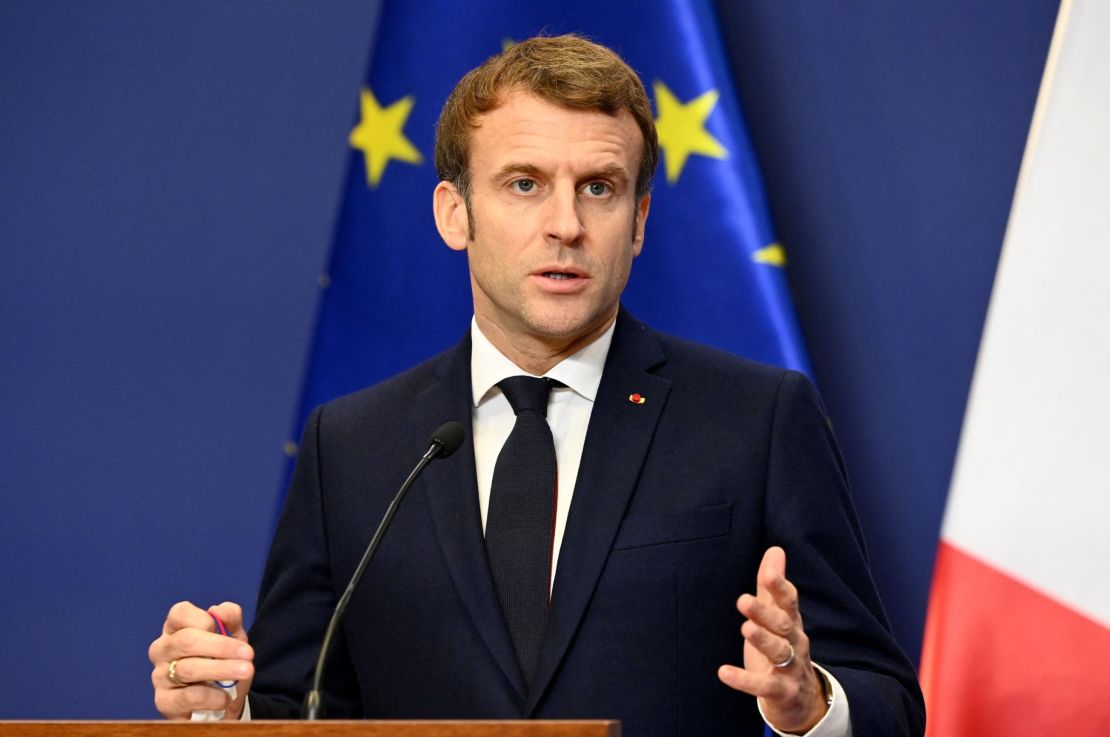
By the start of 2021, France’s Minister of Higher Education Frédérique Vidal announced the launch of an investigation into French academic research on CNews, a French channel that has been compared to Fox News. It would look “at everything through the prism of wanting to fracture and divide,” while singling out colonialism and race studies, according to Agence France-Presse.
The French research organization Vidal tasked with launching the inquiry agreed to carry out the research. It however noted that Islamo-leftism was not a scientific term and condemned “attempts to delegitimize different fields of research, such as postcolonial studies, intersectional studies,” Centre national de la recherche scientifique [CRNS] wrote in a press release.
Conflating academics and researchers with Islamic extremism amounts to McCarthyism, said Alouane, referring to the anti-Communist crusade in the early 1950s by US Sen. Joe McCarthy.
Weaponizing woke is another attempt at bringing academics, researchers and human rights activists to heel, say critics.
“This is a witchhunt against people who question the status quo,” Alouane added. “Instead of trying to make things better, to tackle issues related to discrimination, racial profiling, and the history of French colonization … these academics [and] researchers are considered to be a threat to so-called Republican values.”
It also raises questions about academic freedoms, Hayat told CNN. France only needs to look at how Hungarian leaders chipped away at its education sector, banning gender studies in colleges and forcing the Central European University (CEU) out of the country for failing to comply with their nationalist worldview.
While crude racial stereotypes over genetics and skin color are frowned on in mainstream contemporary discourse, terms like wokeism and Islamo-leftism serve to reinforce dog whistles such as, “they do not belong to our culture. They do not abide by our Christian values,” Alouane told CNN. “It is just neo-racism.”
The anti-woke discourse comes just months ahead of France’s presidential election, where the main ideological threat to Macron comes from the right and far right, not the supposed woke left, said Alouane.
According to some polls, Macron may end up facing off against either far-right National Rally leader Marine Le Pen or the rightwing Les Républicains candidate Valérie Pécresse in the second round of voting.
Anti-woke rhetoric may be part of an effort to neutralize Macron’s right-wing opponents. It is an effort Alouane finds ironic. “The funny thing is, if a far-right candidate makes it to the second round, we will [be told] to save the Republic against the far right – even though this administration has been playing with far-right ideologies the whole time,” she said.
Chilling effect
As in France, many experts say the British government’s anti-woke crusade is aimed at making electoral gains.
Aided by right-wing elements of the British media, Johnson’s government has used the so-called “war on woke” as an opportunity to score points with their mainly English and Brexit-supporting electorate – some of whom switched allegiance from the opposition Labour Party at the 2019 general election.
“It is fertile territory for the Conservatives as they are pressing a button that has been pressed a few decades now in regards [denouncements of] political correctness,” Tim Bale, professor of politics at Queen Mary University, told CNN.
It also places Labour in a difficult position as its leader, Keir Starmer, attempts to “shake off the ‘far left’ tag” the party gained under his predecessor, Jeremy Corbyn, author Evan Smith said.
Johnson’s culture war tugs at the split in Labour, between its socially conservative members, who think the party is too preoccupied with identity politics, rather than class, and its younger and more diverse base, who are happy for Starmer to do more, say experts.
History has been the main battleground, where the Conservative government pits patriotism against any attempt to reckon with Britain’s colonial past.
It is a narrative that has played out in the education sector, which has seen a government-picked commission release a race report that fended off calls to “decolonize” Britain’s schooling curriculum. Instead, it advocated for “a new story about the Caribbean experience which speaks to the slave period not only being about profit and suffering but how culturally African people transformed themselves into a re-modeled African/Britain.”
“British history is not solely one of imperial imposition – Commonwealth history and literature reveals a more complex picture, in which ideas traveled in multiple directions, cultures mixed and positive relations formed that today underpin diaspora around the world, which many ethnic minority children in the UK will feel part of,” the report wrote. Critics accused the report of being a whitewash that puts a positive spin on slavery.
Speaking to the House of Commons last year, Equalities Minister Kemi Badenoch said “any school which teaches these elements of critical race theory as fact, or which promotes partisan political views such as defunding the police without offering a balanced treatment of opposing views is breaking the law.”
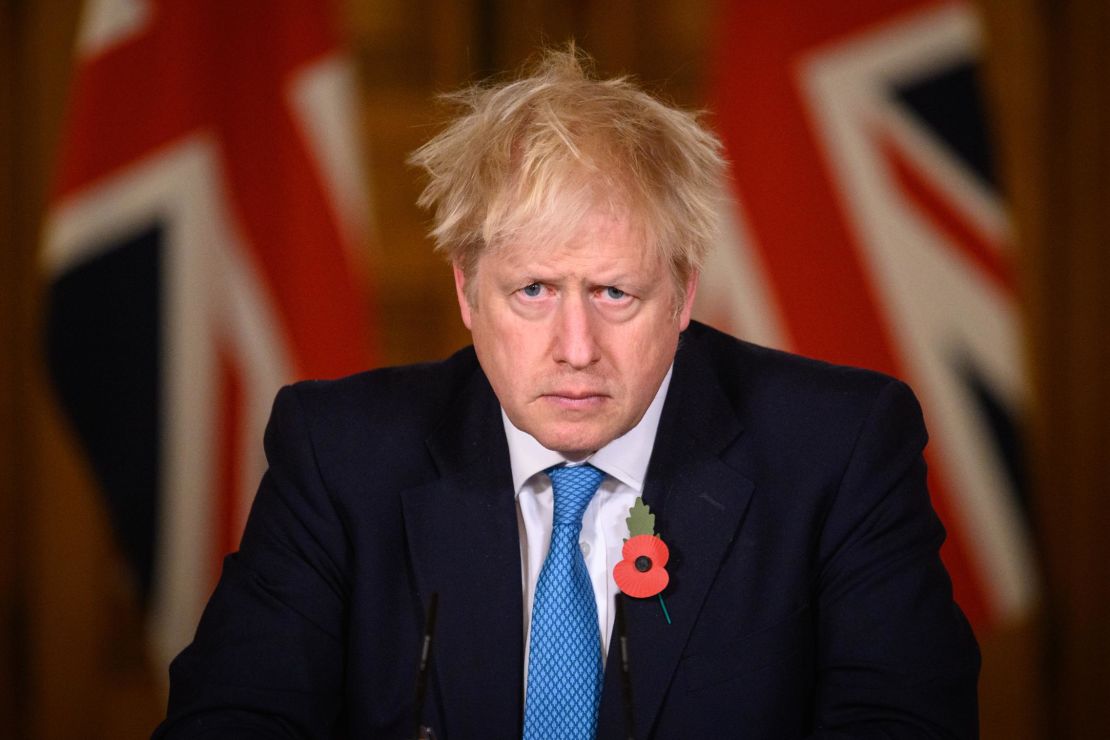
The government has not shied away from threats of intervention when cultural institutions follow progressive causes. If they “go too woke, they risk going broke,” Conservative Party chairman Oliver Dowden said in October, reiterating his warning that such institutions could be defunded if they cave to “an aggressive brigade” of social justice activists.
In the last 18 months, heritage charity the National Trust faced threats to its funding from Conservative lawmakers for exploring its properties’ links to slavery and colonialism, and the Royal Museums Greenwich, in London, found itself under the microscope when the government reportedly refused to reappoint a trustee who advocated decolonizing school curriculums.
The Museums Association, which represents thousands of people working in the sector, warned of “a climate of fear” among “museums and museum staff, especially those working on subjects relating to Britain’s imperial past,” in response to a February meeting between museums, heritage bodies and the Department for Digital, Culture, Media and Sport [DCMS], which Dowden headed at the time. “We support the rights of everyone working on these issues to do so free of interference, threats and intimidation,” the Museums Association added.
The BBC has also come under scrutiny from Conservative lawmakers calling for the license fee, which funds the broadcaster, to be scrapped.
“A lot of Conservatives don’t like the state funding of a media company, and they think the BBC crowds out sympathetic broadcasters,” Bale said. “The whole anti-woke agenda to some extent is cover to move BBC from a license fee model to a subscriber-based one.”
This atmosphere can have a chilling effect on cultural institutions that may feel compelled to think twice about what programs they support or which people they hire. This is alleged to have played out at the BBC, when media executive Marcus Ryder’s job application was reportedly blocked due to his support of anti-racism initiatives. The BBC has strenuously denied those reports.
Supporting anti-racism causes should not be an impartiality issue, Ryder told CNN. “What the BBC needs to do is re-examine its [impartiality] guidelines and decide how it should define ‘controversial’ and whether that can be independent of party politics,” he said. “And it needs to see how this framing works with people whose very existence sits outside the ‘normative standards’ – and this can apply to gender, race, sexuality, etc.”
A BBC spokesperson told CNN that “impartiality is a core value of the BBC and something we apply to all our news coverage.” The spokesperson added: “The BBC plays an important role in informing and facilitating debate about subjects of public interest, some of which are divisive. That being said, the BBC is not impartial on racism or any other characteristics protected by law.”
The policing of institutions by culture warriors acts as a way to undermine the real, lived experience of minorities. It allows for concerns about racism, transphobia or violence against women to be framed as not being of material concern to ordinary people, Neema Begum, a British politics professor at the University of Nottingham, told CNN. The long-term effect of this is just “more polarization,” she added.
Changing demographics
Britain’s anti-woke crusade sometimes borders on the farcical – from a “woke watch” segment on GB News, a British television news channel critics say was set up to find an audience amid the culture wars, to a lawmaker bemoaning that civil servants are still “woke-ing from home.”
Nor has every skirmish against social justice movements been a win for the government. UK Home Secretary Priti Patel accused England’s national football team of engaging in “gesture politics” for taking the knee before its matches in a protest against racism, and refused to condemn those who booed the players for doing so.

But the tactic backfired when the country rallied around the team after some of its players experienced racial abuse online in the aftermath of England’s Euro 2020 final defeat in July. By the end of the Euros, polling showed most England football fans supported the team taking the knee.
“You don’t get to stoke the fire at the beginning of the tournament by labelling our anti-racism message as ‘Gesture Politics’ & then pretend to be disgusted when the very thing we’re campaigning against, happens,” England footballer Tyrone Mings wrote in a Twitter post responding to a tweet by Patel condemning the post-final racism.
“It is clear the British public cares quite a lot [about] the equalities agenda, and it is quite easy for that kind of [government] mobilization to backfire,” Christopher Bertram, emeritus professor of social and political philosophy at Bristol University, told CNN.
It also shows that while the anti-woke messaging works with their base, British society is getting more multi-ethnic, tolerant and woke, Bale said.
“The Conservatives are going to have to make a decision if they carry on railing against the way society is going,” Bale said. “There is a long-term risk for them as it alienates [younger] future voters who they need to keep on side,” Bale added. “There is a limited number of grumpy, older White men to get off on this kind of stuff.”
Even the 73-year-old grandson of Winston Churchill, Nicholas Soames, has heard enough, calling the furor over the Churchill Trust “so sad and so pathetic” in an interview with the Times. “Apparently anyone who modernizes anything or does anything to remotely bring it up to date is ‘woke.’” he said. “It’s absolute b****cks.”

